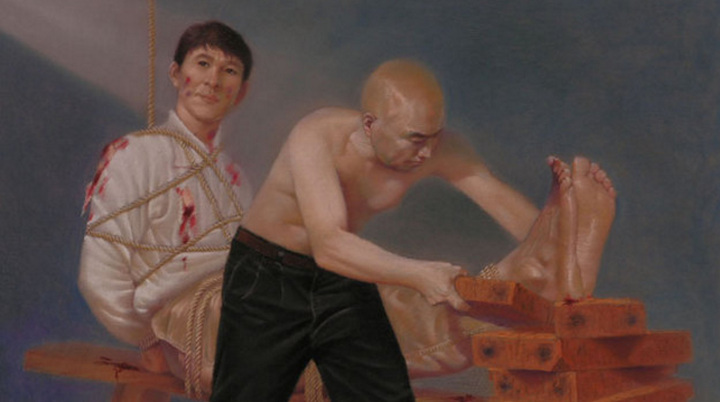A fingerprint belonging to a prison guard was among the 15,000 that were put on a petition in China’s northeastern Heilongjiang Province to protest against the wrongful death of a practitioner of Falun Gong—a type of meditation that has been persecuted by the Chinese regime for years.
The guard apparently works at Jiamusi Prison, where slain Falun Gong adherent Qin Yueming was killed after suffering torture. The person who collected the signatures, Li Ming, told The Epoch Times that the guard recalled to them that a prison warden at the prison, Ye Feng, was responsible for the death of the practitioner.
Falun Gong practitioners have been subjected to the Chinese regime’s wrath since mid-1999, when former leader Jiang Zemin outlawed the practice and created an extralegal organ called the 610 Office to persecute the meditation practice, deeming it an “evil religion.”
However, more and more ordinary Chinese people have stood up against the persecution, with the incident in Jiamusi being the third time in two months where people have signed and placed thumbprints on petitions to redress Falun Gong.
Li told The Epoch Times that he and another person, Chen Caijiang, helped Qin’s daughter collect signatures and fingerprints from thousands of local residents who believe the Chinese regime’s persecution is unlawful and amoral. The two both spoke with the prison guard who placed placed a thumbprint on the petition.
“I knew what happened,” Chen recalled the guard as saying during an interview with The Epoch Times. Qin’s death “was bound to happen and it was because the warden of Jiamusi Prison” ordered it, the guard recalled, according to Chen. The warden, he said, has extensive connections with organized crime syndicates and was known to be an especially unsavory individual.
Qin had been sentenced by local Chinese Communist Party (CCP) officials to 10 years in prison in 2002 for talking to others about Falun Gong’s situation. He was later imprisoned in Jiamusi Prison.
While there, Qin was tortured by guards, who used a common method known as the “tiger bench,” where the victim’s hands are tied behind their back while their knees are tied to a bench and hard objects including bricks are placed under the feet. The placement of the bricks then causes the lower legs to bend upward in an unnatural way that causes a break at the knees. Qin also was subjected to other forms of torture, causing fracturing in his shin bones while suffering injuries to his ribs and other areas.
The guard said Ye, the prison warden, encouraged his staff to torture Falun Gong practitioners in early 2011 with a goal of forcing at least 85 percent of adherents to give up their beliefs. On February 26, 2011, Qin was killed after he was tortured extensively, and days later, two other Falun Gong practitioners were killed in a similar manner.
Qin’s wife, Wang Xiuqing, and his two daughters petitioned local officials to redress his case but they were continually rejected. The Heilongjiang high court took their case but later said it would not try the case after the scheduled court date passed. The 610 Office later abducted Wang and their second daughter Qin Hailong and put them in a forced labor camp in an attempt to stop the petitioning.
Qin Rongqian, the eldest daughter of Qin and Wang who apparently was not sent to a labor camp, in less than a month and with the help of friends and relatives, collected signatures from 15,000 people who placed their thumbprints on a petition to redress Falun Gong.
“I believe in justice and the Chinese people’s moral values. How can those who have power jail and murder ordinary people at will?” reads a quote from the petition that Qin Rongqian passed around.
(Republished with permission from Epoch Times)

